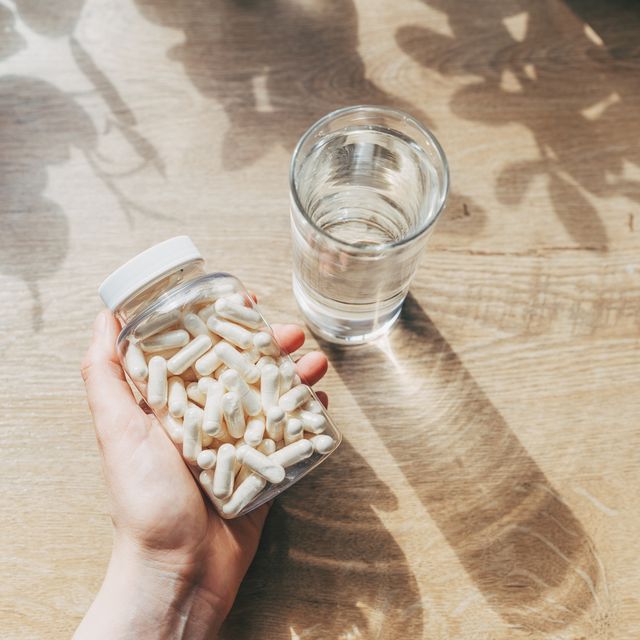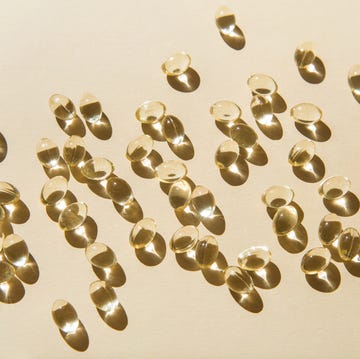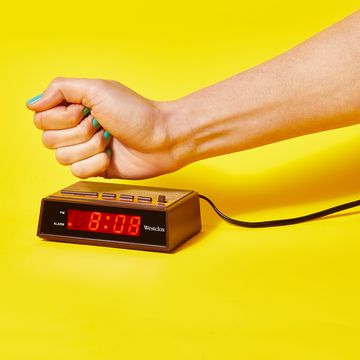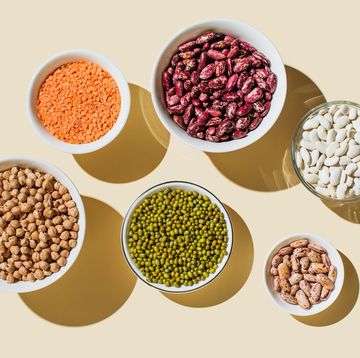Spend any time on social media, and you’ll see scores of folks singing the praises of L-theanine, a supplement that many users claim is a magic bullet for reducing stress and anxiety — fast!
But a quick reality check: While it's true that L-theanine definitely is a good-for-you plant compound, no single food will ever catapult us to a "perfect" state of health or "fix" all of our ailments.
“We do know that the effects of L-theanine are very specific to the person taking it. L-theanine may have antioxidant benefits, in terms of reducing inflammatory markers, may have anti-cancer properties, and appears to reduce inflammation specifically in the gut microbiome,” explains Janese Laster, MD, a board-certified gastroenterologist in Washington, DC.
May is the key word – as with any supplement, it may work for someone else but not for you, or vice versa (and remember: You should always talk to your doctor or a dietitian before adding a new supplement to your regimen).
But if you're curious about L-theanine and whether it could benefit you, here's everything you need to know about this supplement, including the best time to take L-theanine to get the most benefits.
What is L-theanine?
L-theanine is an amino acid, a.k.a. a molecule that helps build protein in the body. It’s often talked about as being found in green tea, but it's also present in other herbal brews such as white, black and oolong teas as well.
However, the amount of L-theanine found in manufactured supplements is a bit trickier to know for sure. "The reality is, if you take a supplement, the amount of L-theanine in it can vary. You can’t know for sure how much you’re getting,” says Dr. Laster.
A doctor or dietitian can also help you choose a quality supplement brand; in general, your best bet is to look for recognized third-party testing certifications that can verify the quality of what you’re buying (NSF and USP, for example, ensure that a supplement contains what it says it does and that it doesn’t have unacceptable levels of impurities).
What are the benefits of L-theanine?
“Research suggests that L-theanine may help support stress management, sleep and potentially weight management,” says Colleen Tewksbury, PhD, RD, LDN, national spokesperson for the American Academy of Nutrition and Dietetics and assistant professor of nutrition science at the University of Pennsylvania School of Nursing in Philadelphia. Again, this may not be true for everyone, but using it could help you kick-start one or more lifestyle changes could be helpful for some people.
Studies also suggest that L-theanine may support liver and kidney function, heart health, digestion and immunity. And as far as those brain and mental health benefits: one small study reported that L-theanine may have a positive effect on cognitive function, attention and memory, while another small study discovered that L-theanine may impact specific brain receptors that promote feelings of calm and relaxation.
When is the best time to take L-theanine?
Anytime is fine, and it's a good idea to try it and see how it makes you feel before settling on a regular supplement-popping time. For instance, if L-theanine produces a relaxing vibe for you, taking it before bed might be a smart move. “Evening may be best, due to the supplement making some people feel drowsy,” says Tewksbury. Can L-theanine officially help you sleep? The jury's still out, as most of the research has been in animals or very small sample sizes.
L-theanine also has the potential to sharpen your attention span and other cognitive capabilities, so taking it in the morning or during the day might work better for you if these are the effects you feel. Happily, L-theanine is one of those supplements that you should be able to take on an empty stomach without a big risk of feeling queasy — but always check the supplement label and instructions, just in case!
Are there side effects or risks to taking L-theanine?
Again, supplements affect everyone differently, but, “common side effects may include headache, nausea and drowsiness” for some people, says Tewksbury.
You shouldn't take L-theanine supplements if:
- You are pregnant or breastfeeding
- You're allergic to green tea
- You take sedatives, antidepressants, blood pressure medication, anti-seizure drugs, or asthma medication
The bottom line: While L-theanine may have the potential to enhance your life and benefit your health in certain areas, “always discuss your individual potential risks and benefits of starting a supplement with your primary care provider,” Tewksbury stresses. “If you decide to start taking this supplement, be sure to disclose it along with all of your medications on future healthcare visits.” L-theanine might indeed give your health a nice boost–but you always want to play it safe.

Lisa is an internationally established health writer whose credits include Good Housekeeping, Prevention, Men’s Health, Oprah Daily, Woman’s Day, Elle, Cosmopolitan, Harper’s Bazaar, Esquire, Glamour, The Washington Post, WebMD, Medscape, The Los Angeles Times, Parade, Health, Self, Family Circle and Seventeen. She is the author of eight best-selling books, including The Essentials of Theater.
Stefani (she/her) is a registered dietitian, a NASM-certified personal trainer and the director of the Good Housekeeping Institute Nutrition Lab, where she handles all nutrition-related content, testing and evaluation. She holds a bachelor’s degree in nutritional sciences from Pennsylvania State University and a master’s degree in clinical nutrition from NYU. She is also Good Housekeeping’s on-staff fitness and exercise expert. Stefani is dedicated to providing readers with evidence-based content to encourage informed food choices and healthy living. She is an avid CrossFitter and a passionate home cook who loves spending time with her big fit Greek family.












